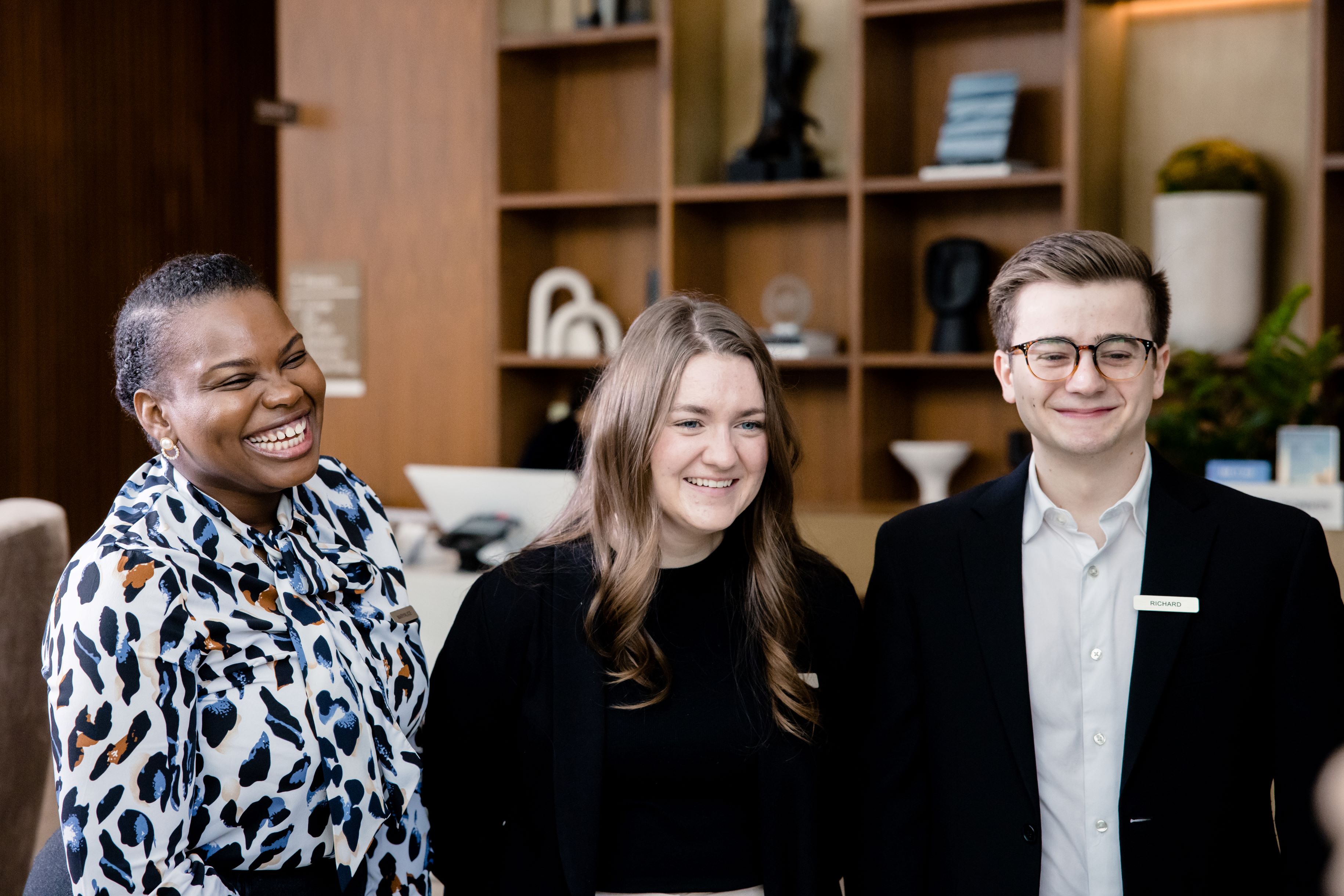Benefits of Company Culture, Employee Experience, Employer Brand, Pride, Recruiting
Pride in the workplace is about more than just feeling good. It’s an essential factor in employee engagement – and one that’s all too often neglected.
When it’s present at work, it inspires individuals and teams to achieve more, communicate better, and build upon each other’s strengths. When it’s not present, things can get ugly. Really ugly. And what is “it”? It’s the often abstract yet extremely powerful feeling of “pride.”
Pride is deeply personal, and yet it also acts as a sort of currency in relationships; if you care for and trust the people you work with, you’re naturally inclined to go the extra mile. Whereas if you don’t have pride in your company or colleagues, things fall apart fast.
What is workplace pride?
At its most basic, workplace pride is exactly what it sounds like: being proud of where you work. When employees have pride in their workplace, they believe in the company – not just what it produces, but how it operates, how it treats its people, and how it engages with the community at large.
However, too many workplaces fail to recognize that pride can’t just be created from a well-crafted mission statement. Pride is cumulative. It doesn’t come from just one thing, but rather from a series of actions and events that are reinforced over time.
Tips and strategies for connecting employee experience to the bottom lineREPORT
How High-Trust Culture Drives Business Success
For example, say you run a clothing company that preaches sustainable production and sourcing practices. But other parts of the business are at odds with that mission. Maybe employees are pushed to unsustainable levels, or the office is stocked with plastic-wrapped snacks. These types of things will undermine any sense of pride.
The 3 levels of workplace pride
What makes employees proud of their company?
Just as pride comes from cumulative efforts, pride itself lives in layers. Workplace pride happens at three levels:
- Your job – e.g., you take pride in the work itself.
- Your team – e.g., you are proud to work with the people around you.
- Your company – e.g., you are proud of the company’s mission and reputation.
Ideally, your employees should feel pride at all three levels – but that’s often not the case. Take the following three scenarios as examples of the drastically different ways pride can show itself in the workplace:
Scenario 1: Pride in the work
Mayuri is a data scientist who is proud of how her research helps others solve problems. But her company recently laid off hundreds of staff and the story was reported in the news. Because of that, she now has little pride in the company as a whole.
Scenario 2: Pride in the work and the team
As a curator at an art gallery, Pete works closely with world-renowned artists and feels a strong sense of pride when he thinks about his team. The gallery is also non-profit, supporting local artist communities, which gives him pride in the company.
Scenario 3: Pride in the work, the team, and the company
When a hurricane hit Louisiana where Ava’s homewares company is based, their operations and supply chain teams quickly worked to move supplies to stores in the storm’s path. Ava’s CEO announced they would donate $1 million to help those whose homes had been affected. Ava felt great pride in her work, her team, and her company.

Real examples of employees who feel workplace pride
Take this real employee story from Sandra Jones, Sr. business systems manager at Management Recruiters of Tallahassee (MRT). Sandra is especially proud of the team she works with:
“I work with a truly amazing team at MRT. One of the advantages of working here is that I'm surrounded by a lot of sharp people who genuinely care about the people they come in contact with each day. Our team is really passionate about what they do because they know that their contributions and ideas matter. It's refreshing to work for a company that will help you grow and meet your goals to succeed and that's why I'm proud to be part of the MRT”
Another real-life example, from Certified™ workplace Tax Relief Advocates. Case manager Amber Godinez takes pride in her individual work and her company:
“I’m proud to come into work every day knowing that our services are here to help the clients are here to ease their way through the harsh IRS process. And being able to connect with my clients personally and let them know that I am here for them. And this company provides a lot of support to our clients. Clients know when they're finished, that we've taken care of them. And that makes me proud to be able to take care of clients and know that I can help them and ease their day and their life.”
Why is workplace pride important?
Pride is more than just a feel-good thing. It creates a stronger, better, more engaged workforce. In fact, Great Place To Work® research has found that when employees feel proud to work at a company, they are:
- 6 times more likely to endorse their workplace to others
- 2 times more likely to want to stay with the company for a long time
- 1 times more likely to say it’s a great place to work
There are plenty of ways that workplaces can foster pride and great relationships, from collaborative lunches to career-development training pathways to sharing real examples of how employees’ work is impacting clients and the community.
Most importantly, the best workplaces set the stage for building employee pride via trust with clear expectations and two-way communication.
As I mentioned earlier, pride is cumulative, so there’s no single recipe that will ensure each and every one of your employees beam with pride. But when you put in the effort to create a culture of trust, you’re taking a step in the right direction.
Certification builds workplace pride
Build an employer brand that employees can be proud of with Great Place To Work-Certification - the most trusted marker of great company culture.
Elevate employee experience
Ensure your best people thrive and stay. Benefit from continuous culture support and our proven model to keep your team committed.












